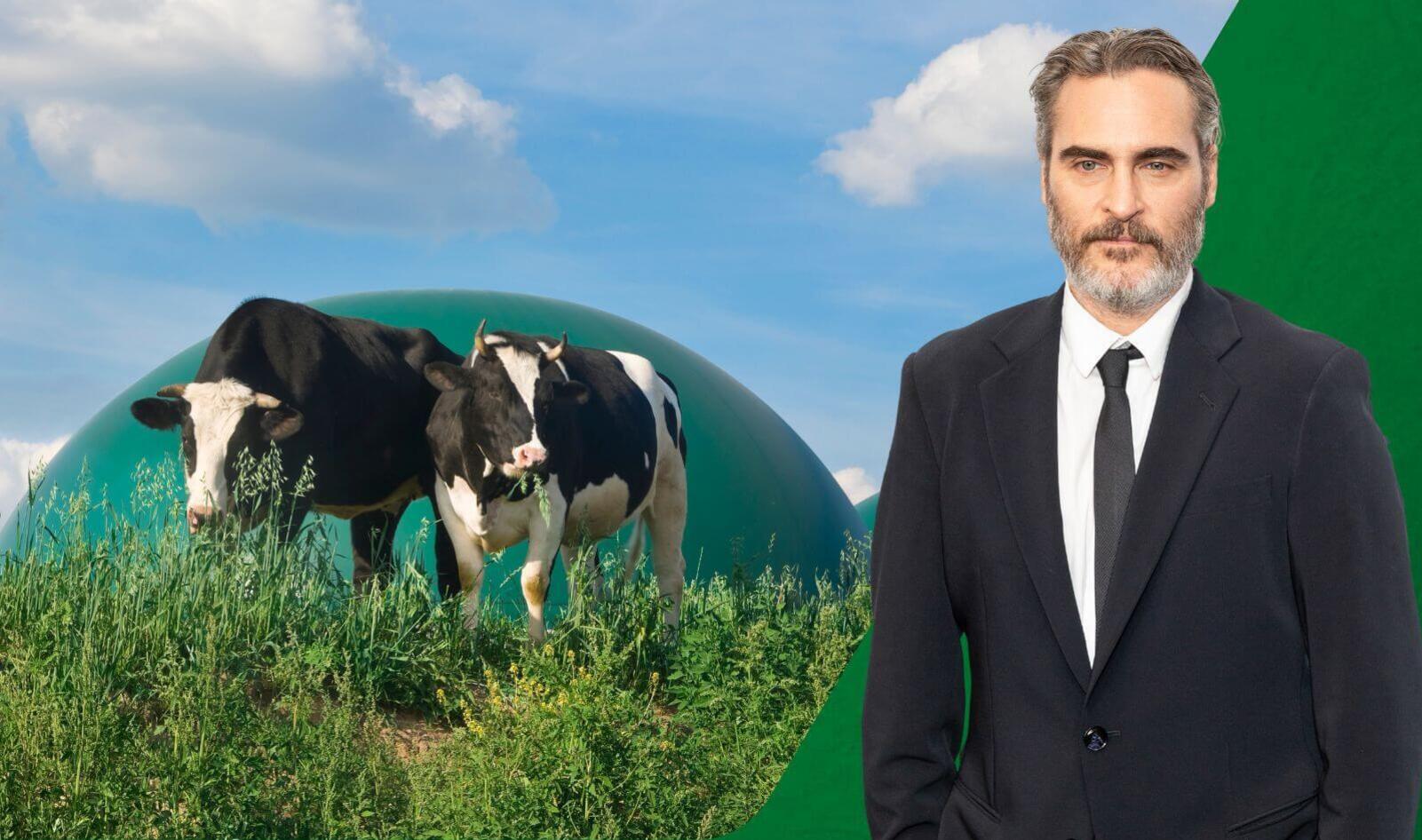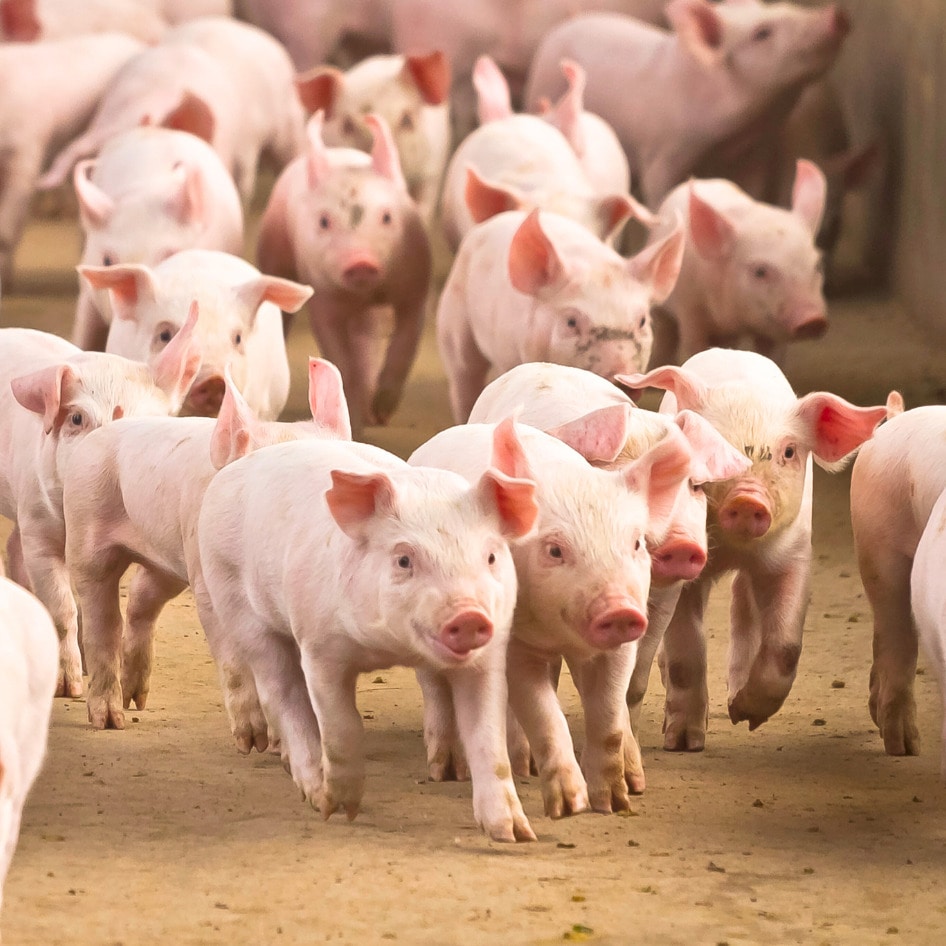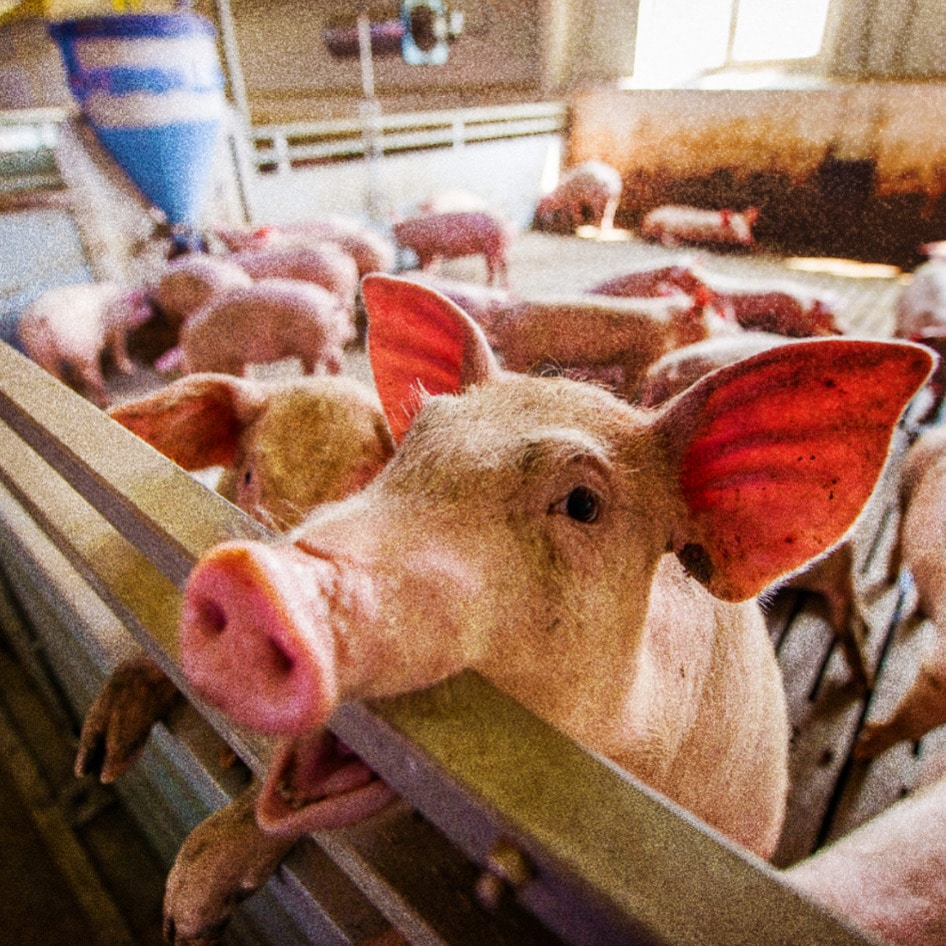The United States government is finally taking the climate crisis seriously by dedicating resources to slash greenhouse gas emissions. However, some activists, including Academy Award-winning actor Joaquin Phoenix, are raising awareness around greenwashing practices within the animal agriculture industry. One such issue is so-called “biogas”—also known as “renewable natural gas,” “biofuel,” and “biomethane”—the term factory farms use to describe the pollution (mostly highly potent methane) that it produces.
“The portrayal of the pollution and methane gas that emit from manure lagoons as naturally occurring and renewable are unequivocally false,” Phoenix said in a statement. “There is nothing natural about artificially inseminating cows and pigs and housing thousands of animals in windowless warehouses. Incentivizing unregulated polluters to expand operations and telling the public it is an environmentally friendly policy is deplorable.”
Phoenix—who has been vegan for decades—lent his voice to a new video produced by nonprofit Animal Legal Defense Fund (ALDF) to expose the truth behind biogas.
Biogas is created when concentrated animal feeding operations (CAFOs) liquify animal waste and funnel it into football field-sized lagoons. When the waste decomposes, it emits noxious gasses that CAFOs somewhat contain with what is called a “methane digester”—typically a tarp that traps the gas and prepares it to be transported to a processing facility. From here, the CAFO sells this gas to a regulated industry as a climate credit. “That regulated industry, in turn, gets to subtract the factory farm gas ‘credit’ from its total emissions,” ALDF Executive Director Stephen Wells told VegNews. “There is no less pollution entering the environment—it is essentially ‘looks good on paper’ math.”
Phoenix and ALDF created the video at a pivotal moment when US policies are finally shifting to address the climate crisis. Last year, the Biden administration released the US Methane Emissions Reduction Action Plan (MERAP) which moves the US toward achieving the Global Methane Pledge, a multi-national effort to reduce methane levels by 30 percent below 2020 levels by 2030. As part of the MERAP, farmers and ranchers will be rewarded for sequestering their pollution and an Interagency Biogas Opportunities Task Force is being created to collect on-farm methane. This week, the President is also expected to sign the Inflation Reduction Act, which will invest $369 billion to support the country’s goal of slashing its carbon emissions by 40 percent by 2030.
In light of these policies, ALDF and Phoenix are speaking out about biogas and the pollution that factory farming creates in hopes of funneling funds and attention into the right place to effectively mitigate the climate crisis. When examined as a whole, factory farming produces 37 percent of US methane emissions which come from raising animals for meat and dairy production and storing manure on factory farms in lagoons where the waste biodegrades without access to oxygen.
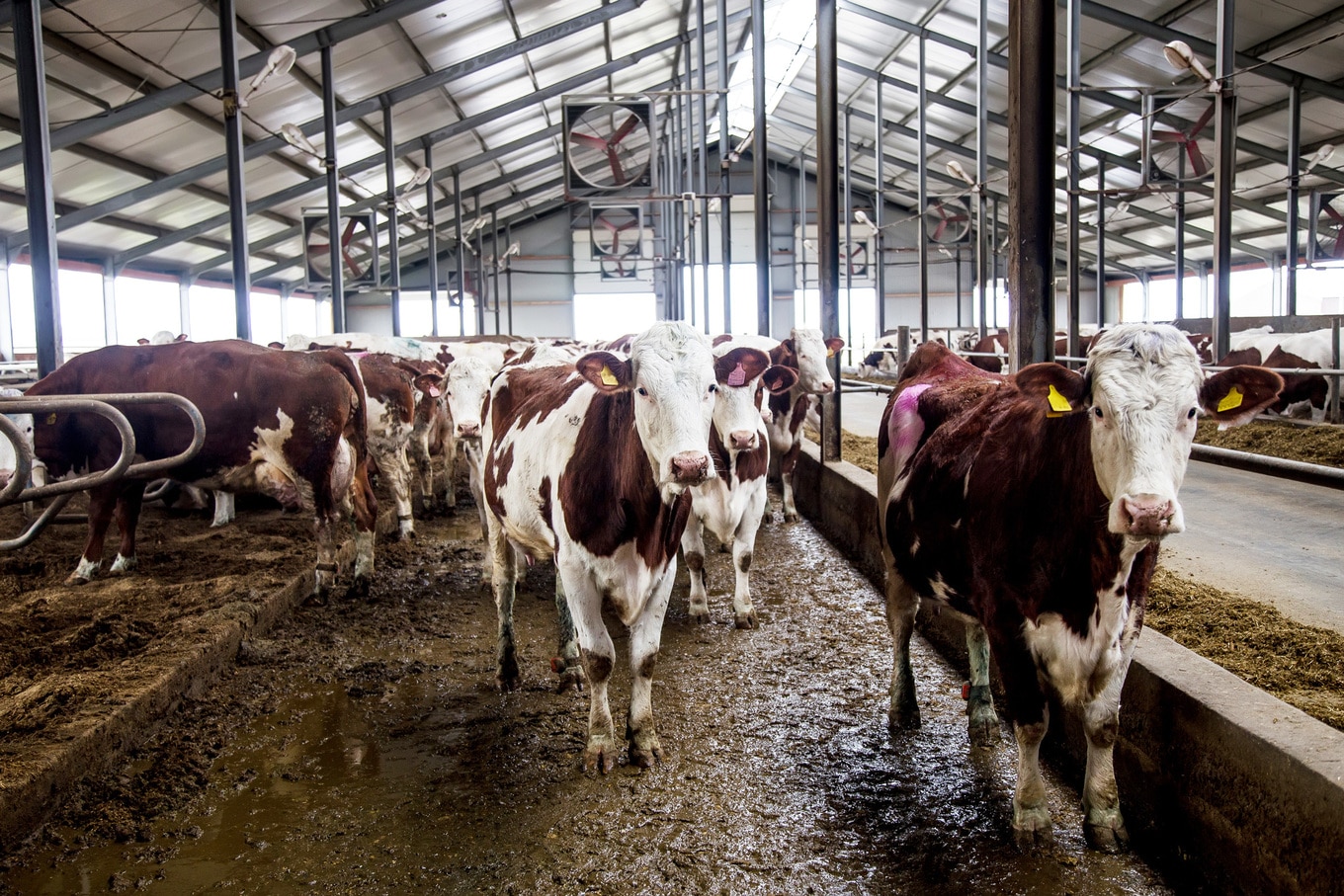
“Capturing the methane that results from animal waste decomposing does not eliminate it from entering the environment,” Wells said. “It instead allows the factory farm to profit from its unregulated pollution—a scheme that’s been referred to as ‘pay-to-pollute.’ And it allows another polluting industry (fossil fuels, for example) to subtract the factory farm gas from its total regulated pollution via credits purchased.”
Wells explains that supporting these biogas schemes, in actuality, has the opposite effect of reducing pollution. “Tax credits, grants, and subsidies given to this industry will promote further consolidation and even larger facilities, warehousing thousands of animals and causing even more environmental degradation,” he said.
Dismantling factory farms to slash greenhouse gas emissions
So how can the US slash its methane emissions? One solution, first proposed in 2019 by New Jersey Senator Cory Booker—a longtime vegan and social justice advocate—is the Farm System Reform Act (FSRA), which seeks to transition animal agriculture away from factory farming by banning new CAFOs and phasing out the largest factory farms by 2040. FSRA would also hold factory farms accountable for the pollution they create, which, as outlined in new documentary The Smell of Money, disproportionately affects communities of color. It would also set aside $100 billion over the course of 10 years to help former CAFO-owners transition into what the bill describes as better forms of agriculture.
“Factory farm biogas should be specifically excluded from any incentives or financial support that the government extends for broader biogas production and trade,” Wells said. “Industrial animal agriculture facilities should not get a handout that incentivizes them to continue their unsustainable and cruel practices at current or increased production levels. Instead, the government should focus on properly regulating this industry and extend incentives for true forms of renewable energy, sustainable farming methods, and transition away from the industrial animal agriculture industry to plant centered farming.”
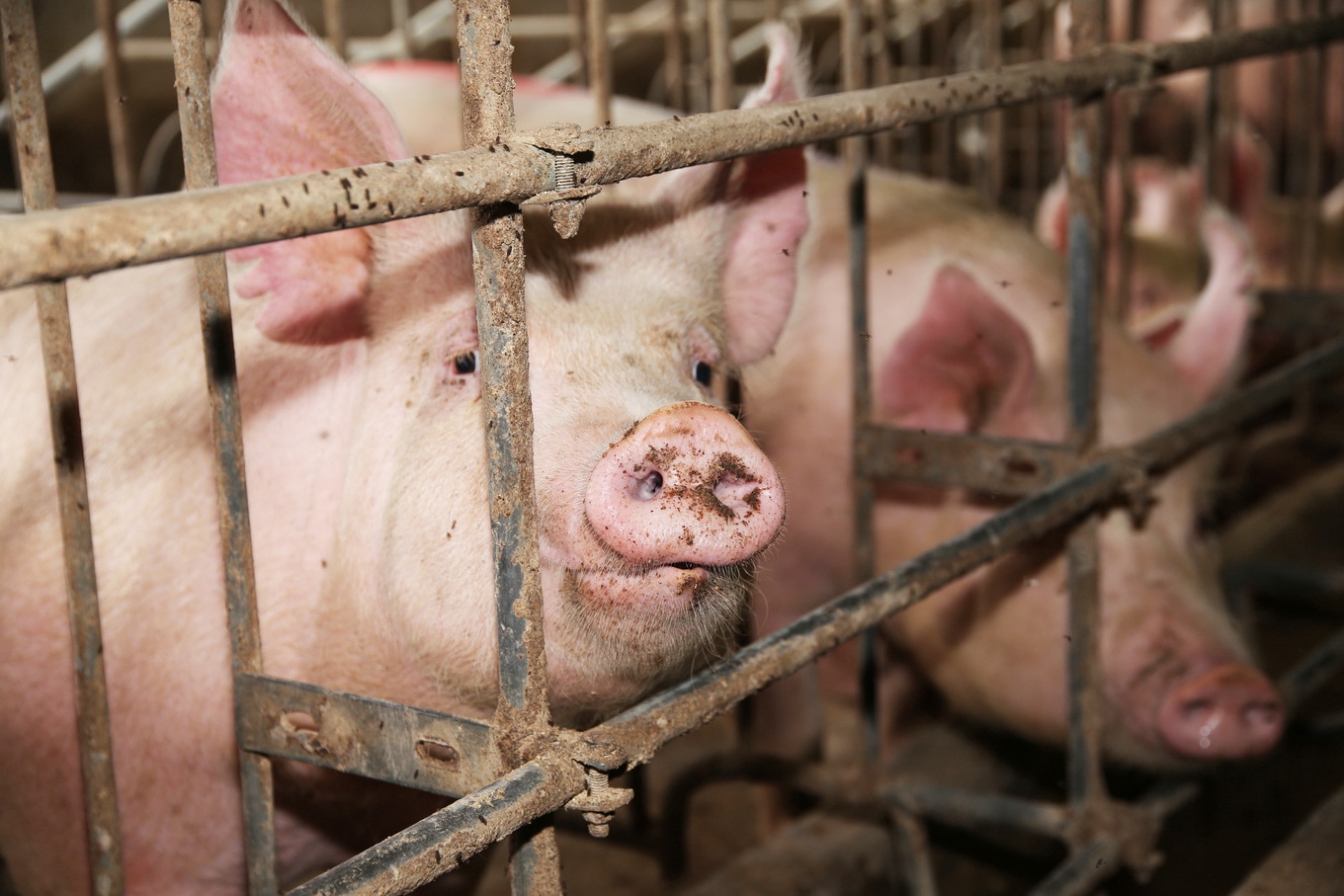
Wells explains that factory farms were only established a few decades ago and are not the necessary industry some people make them out to be. “Suggesting a known polluting, yet highly unregulated industry—which wasn’t firmly established, with steep consolidation in the 1950s at the urging of the US Secretary of Agriculture—is ‘necessary’ relies on government-dictated data of dietary needs,” Wells said. “The US Department of Agriculture is charged with regulating and promoting the animal agriculture industry. From the nutritional directives it establishes to Check Off programs to the requirements of federally funding food programs—the federal government promotes meat, egg, and dairy consumption then subsidizes the production of these products to make them cheaper than other foods.”
When factory farms are seen as the problem—not the emissions they produce but their existence in the first place—methane digesters are not the solution. Instead, focusing on building an economy around more sustainable foods, including plant-based alternatives to meat, dairy, and eggs, is the real way forward.
“Diverse proteins and cultivated meat proteins continue to develop and gain market share. Investing in these industries, and to cap and reduce the number of concentrated animal feeding operations (CAFO), would have a much greater positive impact on the environment, animals, and communities,” Wells said. “What is necessary is a stable, biodiverse environment—with breathable air and clean water.”
For the latest vegan news, read: Why This Former Meat Company Now Makes Vegan Ribeye
New 3-Day Vegan Festival Celebrates Black Leaders, Businesses, and Orgs
Can the Vegan Food Industry Help Save Animal Agriculture Jobs?
JUMP TO ... Latest News | Recipes | Guides | Health | Subscribe

